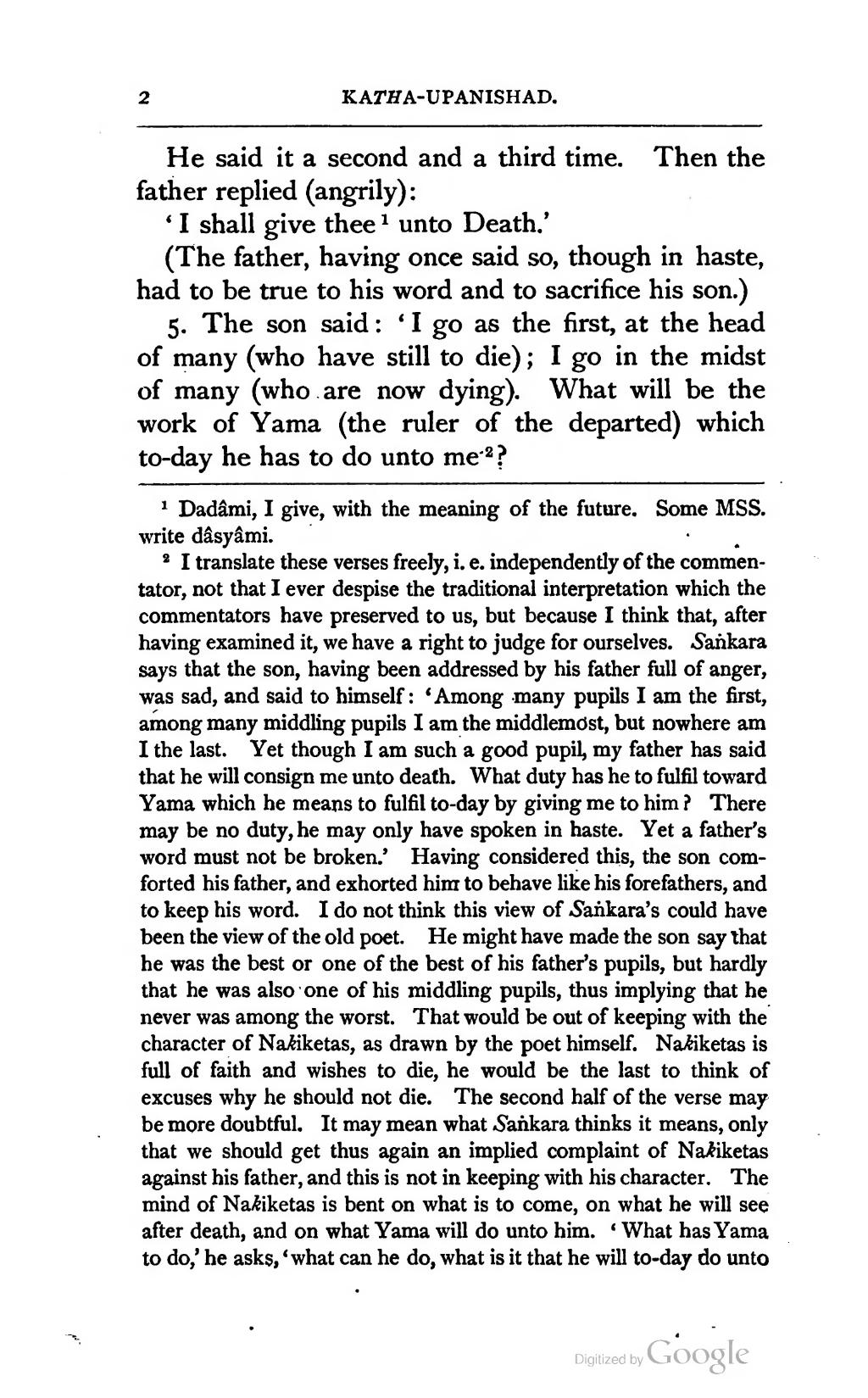He said it a second and a third time. Then the father replied (angrily):
"I shall give thee[1] unto Death."
(The father, having once said so, though in haste, had to be true to his word and to sacrifice his son.)
5. The son said: "I go as the first, at the head of many (who have still to die); I go in the midst of many (who are now dying). What will be the work of Yama (the ruler of the departed) which to-day he has to do unto me[2]?
- ↑ Dadâmi, I give, with the meaning of the future. Some MSS. write dâsyâmi.
- ↑ I translate these verses freely, i.e. independently of the commentator, not that I ever despise the traditional interpretation which the commentators have preserved to us, but because I think that, after having examined it, we have a right to judge for ourselves. Sankara says that the son, having been addressed by his father full of anger, was sad, and said to himself: "Among many pupils I am the first, among many middling pupils I am the middlemost, but nowhere am I the last. Yet though I am such a good pupil, my father has said that he will consign me unto death. What duty has he to fulfil toward Yama which he means to fulfil to-day by giving me to him? There may be no duty, he may only have spoken in haste. Yet a father's word must not be broken." Having considered this, the son comforted his father, and exhorted him to behave like his forefathers, and to keep his word. I do not think this view of Sankara's could have been the view of the old poet. He might have made the son say that he was the best or one of the best of his father's pupils, but hardly that he was also one of his middling pupils, thus implying that he never was among the worst. That would be out of keeping with the character of Nakiketas, as drawn by the poet himself. Nakiketas is full of faith and wishes to die, he would be the last to think of excuses why he should not die. The second half of the verse may be more doubtful. It may mean what Sankara thinks it means, only that we should get thus again an implied complaint of Nakiketas against his father, and this is not in keeping with his character. The mind of Nakiketas is bent on what is to come, on what he will see after death, and on what Yama will do unto him. "What has Yama to do," he asks, "what can he do, what is it that he will to-day do unto me?" This seems to me consistent with the - ancient story, while Sankara's interpretations and interpolations savour too much of the middle ages of India.
